WeChat Mini Program - 5 effective ways of Social Selling
China Tech Roundtable founder Lionel Sim explains five different ways how brands and retailers can use WeChat mini-programs to create unique social selling campaigns.
by Lionel Sim
This article is a guest post from Lionel Sim.
Lionel Sim is the Founder of China Tech Roundtable (互圆). China Tech Roundtable is a marketing agency specializing in educating and connecting Global Brands to understand WeChat and China's Digital Ecosystem.
Welcome to Part #2 of Mini Program Social Selling series. In this series, I would cover on the types of social selling strategies that will work on WeChat Mini Program.
Since the inception of WeChat Mini Programs, I had researched and analyzed close to 1000+ Mini Programs and have helped more than 100+ Brands understand the value of WeChat Mini Program and better generate profits through this channel.
I had discovered there are 5 key types of social selling which are effective in generating traffic and revenue. I would name each type together with supporting example to help you better understand.
1. Limited Time Offer Mini Program
Mini Program that deploys Flash Sales or limited time offer generates viral interest to attract consumers. For consumers, the ability to obtain a good deal is psychologically addictive and spur strong consumer buying desire.
This will attract a large group of targeted audience to participate in flash sales or limited time offers which will generate high volume of brand awareness and marketing for the products.
From my market research, this type of mini program works best for luxury and premium brands that is able to effectively display their brand identity in the Mini Program.
The key is to promote exclusivity and engage high level of interest through social word-of-mouth
The need for individual expression in the Social Era among Chinese Consumers especially the Millennials has further accelerate the adoption of digital channels such as Mini Program to purchase luxury products and services.
One of the case study is the partnership between Mr. Bags who is a social media influencer in China and Tod’s to launch the latest edition of Tod’s. Within 6 minutes of launching the WeChat Mini Program shop, more than 300 bags were sold. Each bag is worth around 5000 USD or more.

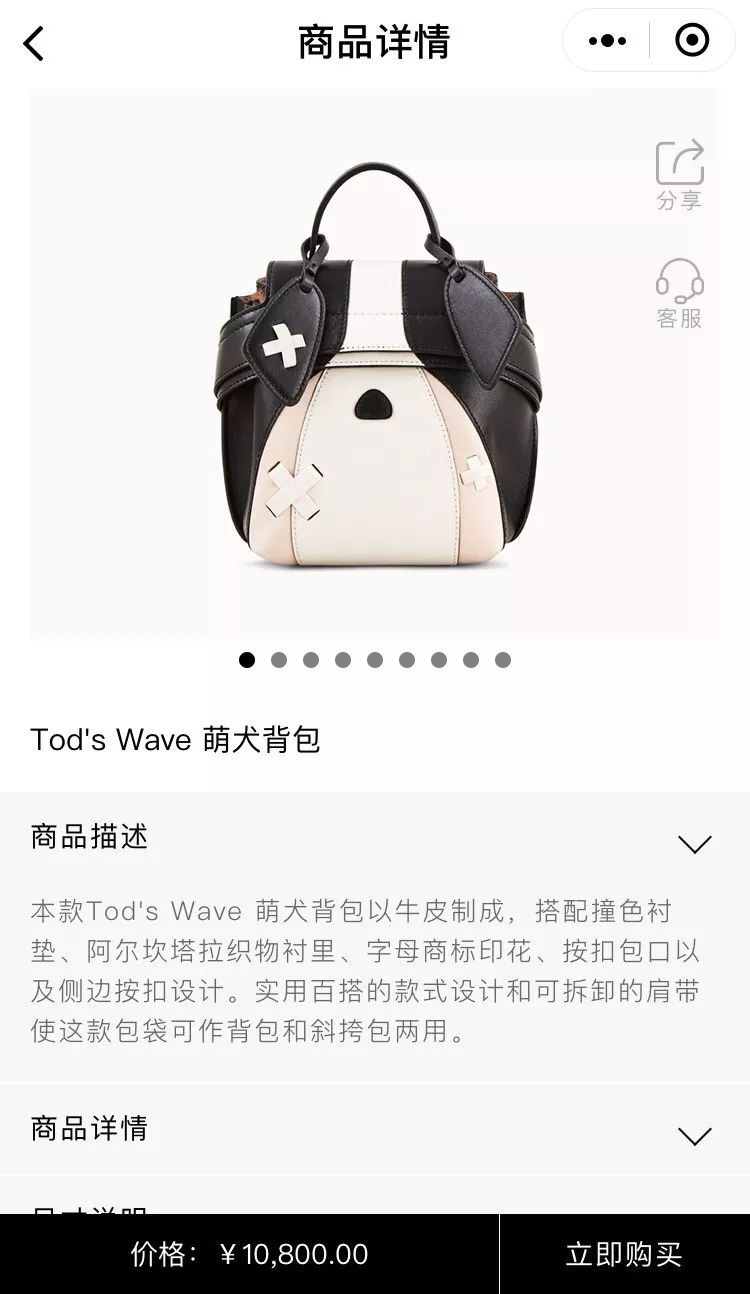
Mr. Bags partnership with Tod's to launch on Mini Program
Another good case study of timed offers on Mini Program is Rimowa in which they have partnered with Off-White to launch their exclusive luggage in China. Similarly, the campaign launched to much fanfare and achieved significant results in terms of brand awareness and sales volume.
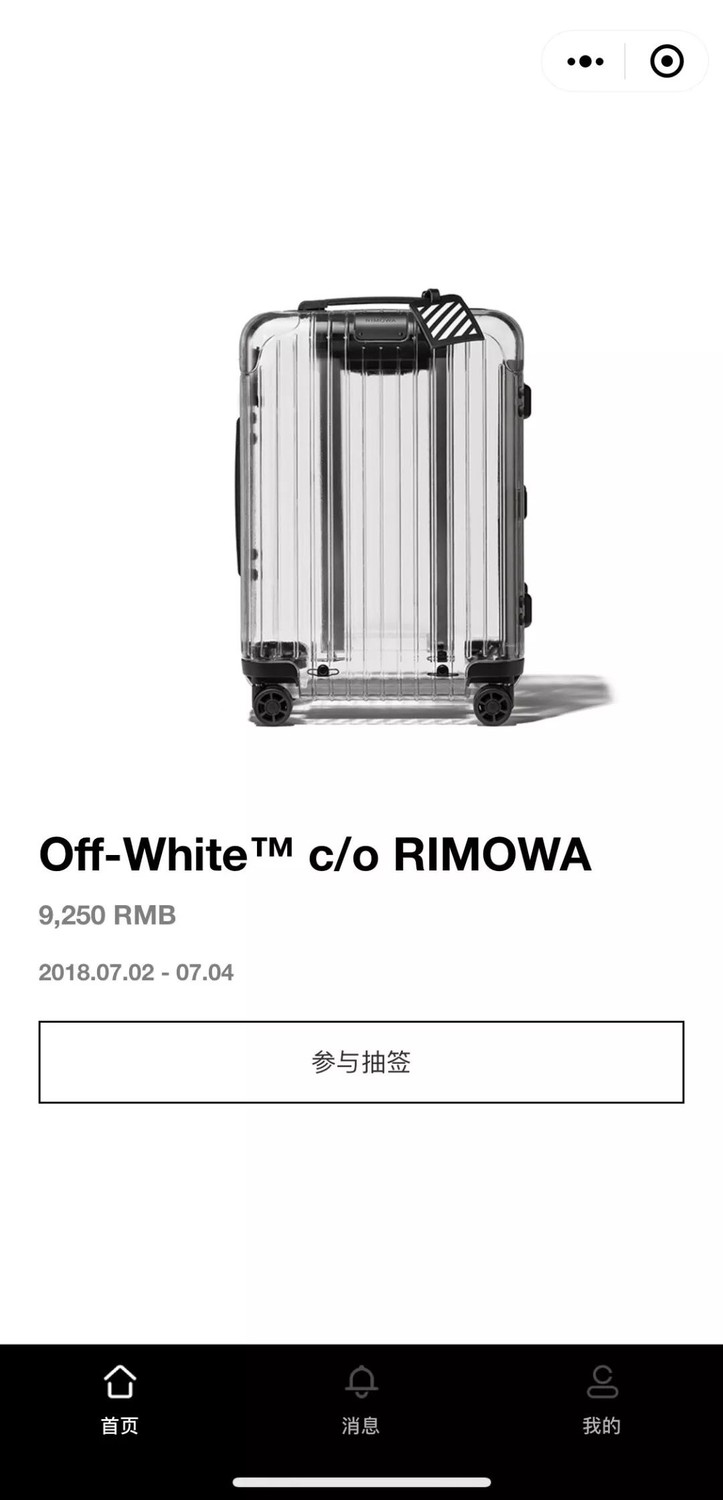
Rimowa x Off-White Exclusive Launch on Mini Program
2. Price sensitive Mini Program
Merchant is able to provide users a significant discount if the user is able to successfully share or refer their friends to the Mini Program.
Additional reward incentives such as discounts and complimentary gifts would be levied if their recommended friend purchased the products.
This type of Social Selling rely heavily on network effects to bring traffic and awareness to the Mini Program
The subsequent purchase decision journey is accelerated by strong social recommendations and trust established over the consumer marketing lifecycle on WeChat.
Starbucks China has successfully implemented this model of social selling whereby a customer who bought a Starbucks coffee through the Mini Program could pass on this e-coupon on vouchers to deduct 10 dollars off a 60 dollars purchase in Starbucks. They are limited to sending the e-coupons to an allocated number of friends within WeChat.
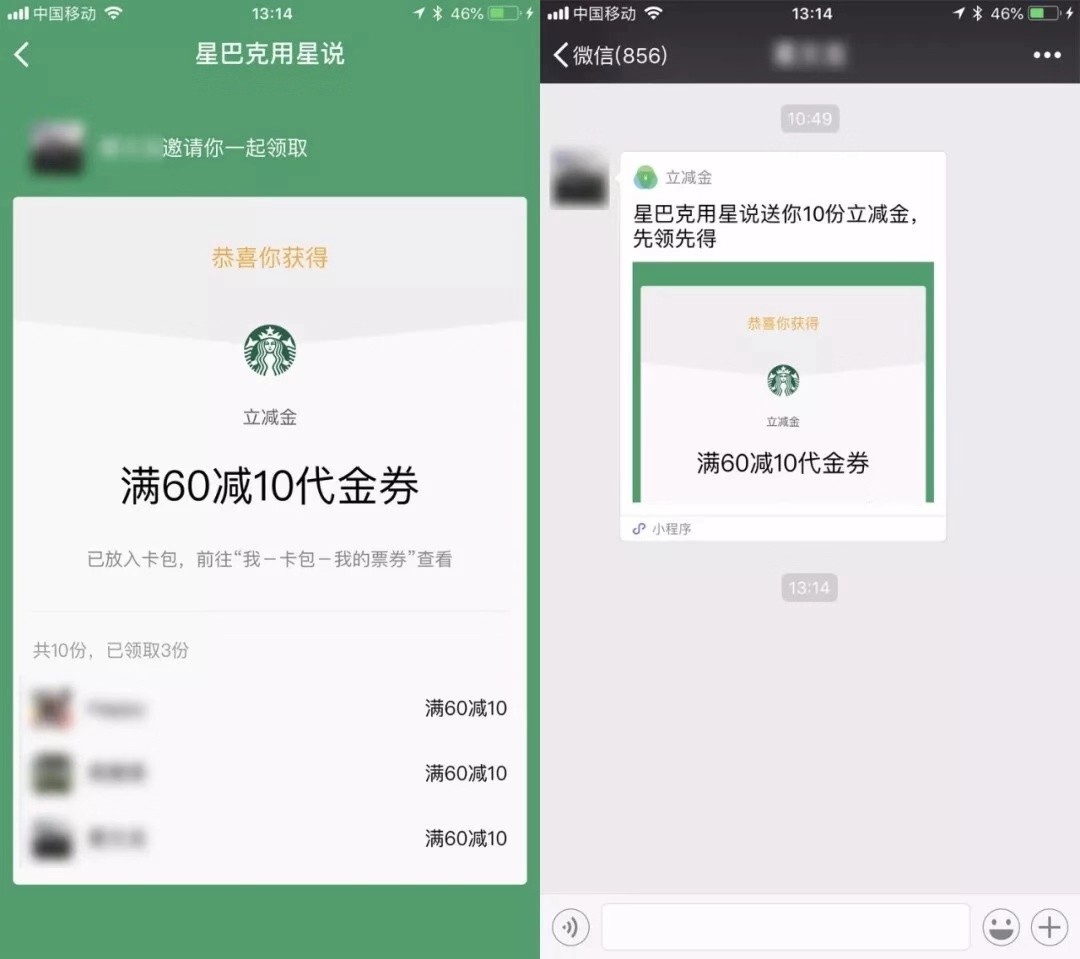
Starbucks China Discounted Offers Mini Program
3. Social Group Buying Mini Program
Merchant could select a limited assortment of products to activate social buying campaign on Mini Program. The campaign could be prefixed by the merchant to focus on the campaign period, audience size and validity period.
User could invite friends to buy together at a lower price or to obtain complimentary items on top of their purchases. User would share the Mini Program via their WeChat Moments, WeChat Friend network and WeChat Groups to garner social interest.
This type of social selling allows large amount of users to refer and group buy products and services. One important factor to take note is that these mechanics ensure “impulse” purchases and quickly put the brand of merchants in front of a large group of target audience.
Another important factor is the perceived social influence of “Guanxi” in China which social and impulse purchases are made upon highly trusted and highly social environment
Pinduoduo is a master of Social Group Buying and is very successful in leveraging the power of social recommendations to acquire users and offer product purchases at a significantly lower pricing.
Their target audience is predominantly targeted at price sensitive clients and this form of mini program works best for Low to Mid-Priced products and services.
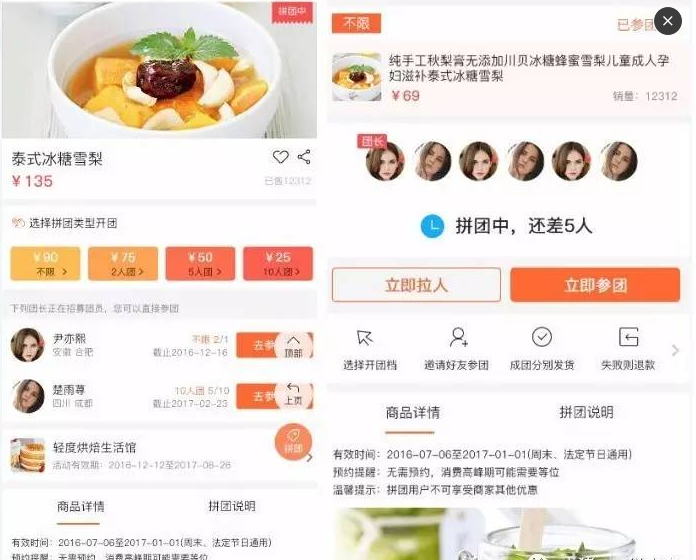
Social Group Buying is becoming more popular in Mini Program
4. Reward Points Mini Program
I have seen Online and Offline Merchants launching Mini Programs and acquiring new users with membership points - Pay X dollars to obtain X points. Users could also get additional points for referrals or on special promotional occasions like their Birthday or Merchant Membership week.
A lot of merchants in China are really smart in generating the initial traffic to the WeChat Mini Program by designing gamification elements into the Mini Program to drive lead generation and successful conversions.
The more advanced merchants have developed a Mini Program marketplace to display an assortment of products with associated points for redemption to drive membership
Carrefour China did a really good job in launching reward points by promoting the latest assortment of fresh produce and also the latest range of promotional items.
From my observation in the Carrefour retail store in China, I had witnessed many Chinese consumers actively scanning the QR code purchasing and redeeming with the reward points that they have. It has drastically cut down the queues in the supermarket and increase overall user experience by “Scan, Redeem and Purchase”.
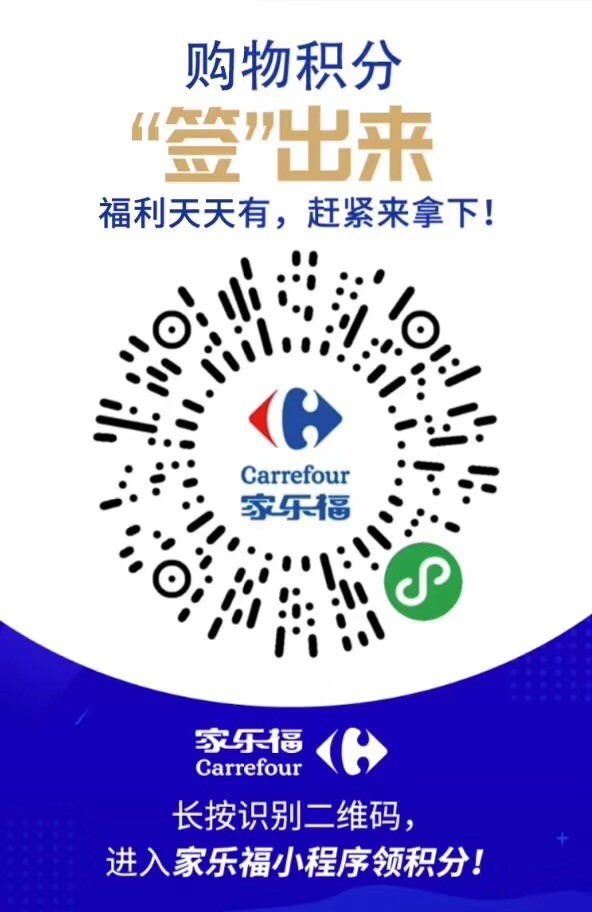
Carrefour China draws customers to sign up and redeem in Mini Program
5. E-Coupon/Card Mini Programs
E-Coupon/Card have been prevalent in WeChat platform for a while and the ability to integrate coupons or gift cards to Mini Program is certainly useful for user acquisition, engagement and loyalty.
When JD.com group buying Mini Program was first launched, they have introduced more than 50 kinds of E-Coupons inside the Mini Program. The mechanics of the campaign is that the user has to acquire four more users to enjoy a 100 RMB e-coupon.
The campaign was wildly successful as it drives new users to the Mini Program with coupons or gift cards for discounts or to upgrade their existing value of product or service.
For existing users, the Mini Program is also able to issue e-coupons or e-cards on a weekly or monthly basis. There are a lot of successful merchants driving user acquisition through a mixture of gift cards for lead generation plus group buying for social engagement.
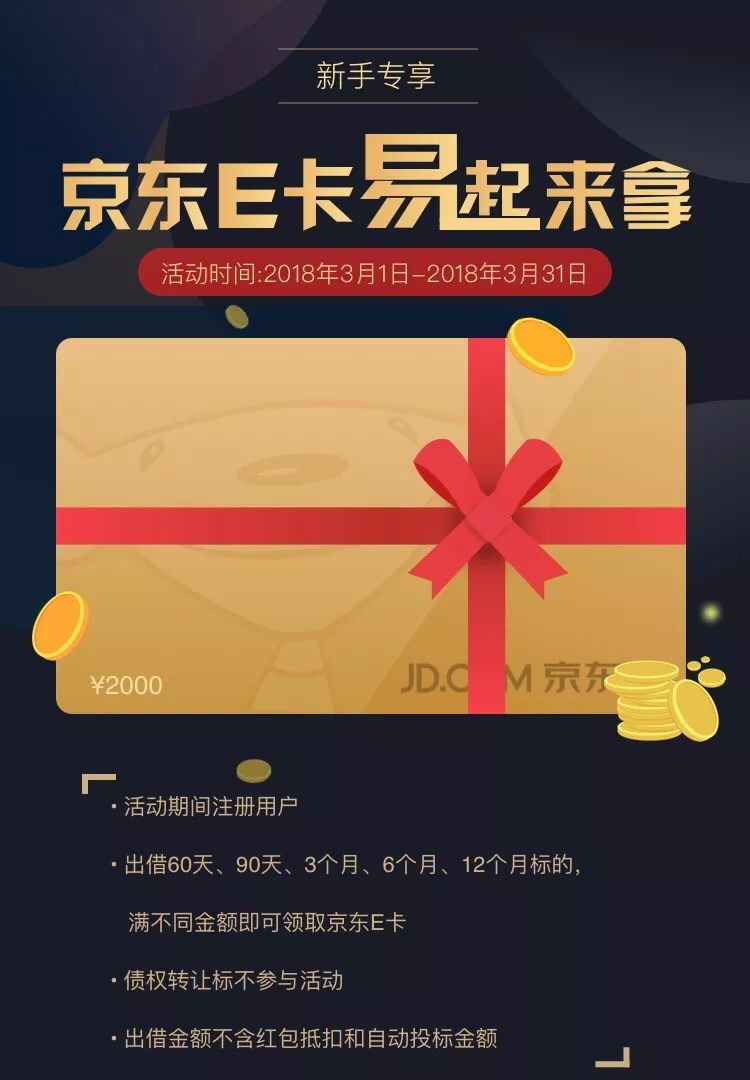
JD.com launching e-coupons within Mini Program
Concluding thoughts
Global Brands should decide which form of social selling tactic works well for them by understanding their product’s unique selling proposition and also how to leverage upon the power of social to market to Chinese consumers.
There are a lot of opportunities for the growth of social selling in WeChat Mini Program.
Chinese consumers are increasingly looking at more personalized and tailor-made products catered to them at the right place and at the right time.
The power of social and digitalization will further bring Global Brands and Chinese Consumers in a global digital market place to curate and design value-added products and experiences together.